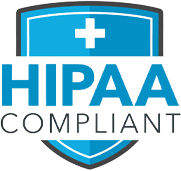First Visit Information
Patients should bring photo identification, insurance card(s), payment, and a list of current medications to their first visit.
While each patient’s first visit is curated to the individual’s needs, here’s what you may expect:
- Patient Registration: Like any medical appointment, the first step usually involves checking in at the front desk. You’ll provide your personal information, insurance details, and complete any necessary paperwork, such as medical history forms or consent forms. At this time, patients will pay any fees or co-pays, and address billing questions.
- Medical History Review: After registration, a nurse or medical assistant will often review your medical history. They may ask questions about your allergies, asthma symptoms, and any previous treatments or medications you’ve tried.
- *Allergy Testing: If you haven’t had allergy testing done before, the allergist may recommend testing to identify specific allergens that trigger your symptoms. Common tests include skin prick tests or blood tests. These tests can help determine your allergic triggers.
- Breathing Test: If you have asthma or suspected asthma, you may undergo lung function tests such as spirometry to assess your lung health and determine the severity of your condition.
- *Discussion of Symptoms and Concerns: The allergist will spend time discussing your symptoms, concerns, and any questions you may have. It’s important to be open and honest about your symptoms, triggers, and lifestyle factors that may contribute to your condition.
- *Diagnosis and Treatment Plan: Based on your medical history, physical examination, and test results, the allergist will provide a diagnosis and develop a personalized treatment plan. This plan may include medications, lifestyle recommendations, and allergen avoidance strategies.
- *Education: The allergist will likely educate you about your condition, including triggers, symptoms to watch for, and how to manage your allergies or asthma effectively. They may also discuss immunotherapy (allergy shots) if appropriate.
- *Follow-up Appointments: Depending on the severity of your condition, you may be scheduled for follow-up appointments to monitor your progress and make adjustments to your treatment plan if necessary.
- *Prescriptions: If medications are prescribed, you will receive instructions on how to take them, including dosage and potential side effects.
- *Billing and Scheduling: After your appointment, you’ll likely check out at the front desk, where you may schedule follow-up appointments.
*indicates part of your visit that may vary depending on your appointment and needs.


